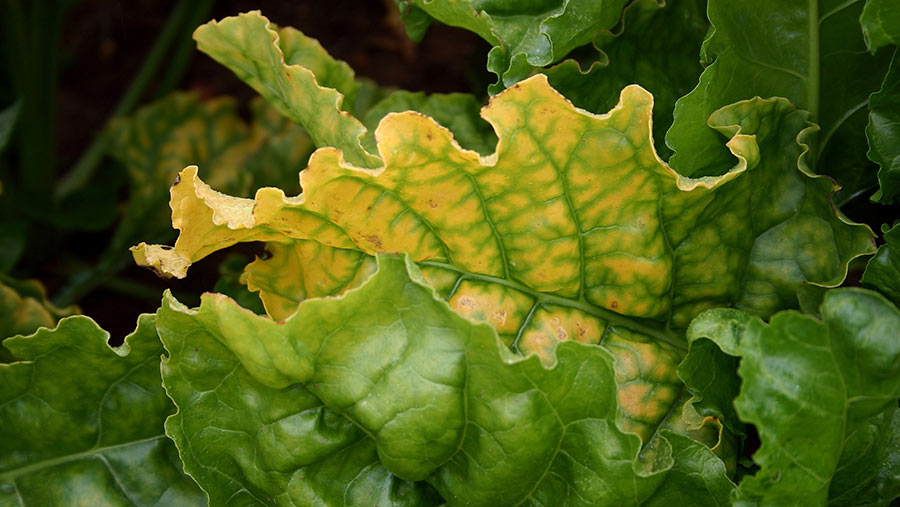France to lift neonics ban to save beet industry
 © Blackthorn Arable
© Blackthorn Arable The French government is planning to lift a blanket ban on the use of neonicotinoids to help save its sugar beet industry.
Sugar beet crops in France have been ravaged by aphids this year with widespread yield losses reported across the country, its agricultural ministry said on Thursday 6 August.
UK beet growers are also experiencing crop losses this season due to high levels of virus yellows showing in crops.
See also: What research is being done to tackle virus yellows in beet
The peach potato aphid (Myzus persicae) is the main vector for spreading the virus in beet crops – and it can cause yield losses of between 25-50%.
Growers had previously been able to use neonicotinoid seed treatments to protect their crops from virus yellows. But they have had to resort to using foliar insecticide sprays, which are less effective.
The French government announced a series of measures to support the “unprecedented crisis” facing its sugar beet growers, including for the first time a derogation to use neonic seed treatments for the 2021 season – and, if necessary, for 2022 and 2023.
“French beet growers face an unprecedented crisis: yellow virus transmitted by aphids has developed massively in all French producing regions and is going very strongly impact beet production,” the ministry said.
This follows similar derogations in other EU countries such as Belgium, Spain and Poland.
Defra resistance
To date, the UK government has resisted calls for similar derogations on neonics use for British growers.
British Sugar has insisted that the neonics ban is not warranted for sugar beet as it is not a flowering crop and, therefore, does not attract bees, which have been linked to a decline through the use of these insecticides.
But Defra said it had no plans to change the neonics ban to help UK beet growers.
A Defra spokesperson said: “The weight of evidence shows a significant environmental risk posed by neonicotinoids –particularly to our bees and other pollinators.
“We will maintain our current restrictions unless the scientific evidence changes. We understand that this has real implications for growers and have granted emergency authorisations for alternative products to protect sugar beet crops this year.”
Two-year battle
The French agricultural ministry said its beet growers had been battling virus yellows since they stopped using neonics two years ago. However, alternative chemistry “had proved ineffective for beet cultivation, especially in the climactic conditions at the start of 2020”.
France is the biggest producer of sugar in Europe, providing 46,000 jobs in the sector– of which 25,000 are beet growers – and with 21 sugar beet factories in operation.
- Are you a UK sugar beet grower whose crop is being damaged by virus yellows this season? If so, please email your stories and photos to philip.case@markallengroup.com
